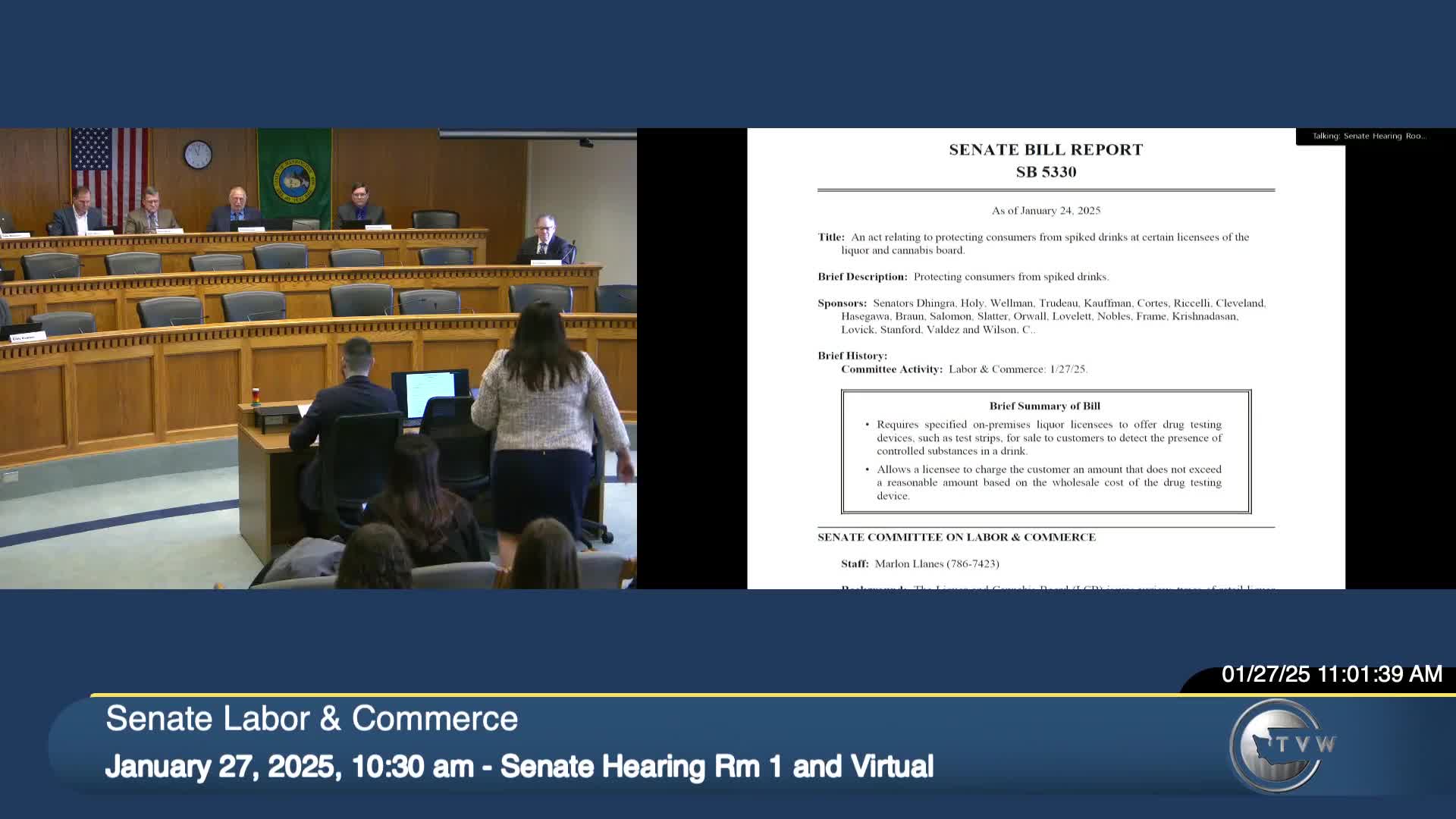Students and advocates push bill requiring drink‑spiking test kits be sold at bars and nightclubs
Get AI-powered insights, summaries, and transcripts
Subscribe
Summary
Senate Bill 5330 would require certain liquor-licensed businesses to offer drug-testing strips for sale and post signage; high-school students led proponent testimony while hospitality groups raised concerns about costs, signage and license definitions.
The Senate Labor & Commerce Committee heard Senate Bill 5330, which would require certain liquor licensees, including taverns and nightclubs, to offer drug-testing devices for sale to customers and post a prominent notice that "Drink spiking drug kits available here. Ask a staff member for details." Licensees may charge a reasonable price not to exceed wholesale cost plus markup; the bill shields licensees from liability for defective test results and takes effect Jan. 1, 2026.
Sponsor Senator Dhingra (testimony identified in transcript as Senator Dhingra) said the bill was inspired by a California law and by students from Lake Washington High School who proposed the idea through an AP Government project. "People should feel safe when they go out to bars and nightclubs," the sponsor said, citing studies and local cases of drink spiking and drug‑facilitated sexual assault.
A large panel of Lake Washington High School students provided organized pro testimony, offering personal accounts, statistics and vendor pricing research. Student witnesses cited studies showing variable prevalence estimates for drink spiking and called for prevention and awareness. Students reported contacting bars statewide; they said many managers were supportive and suggested a breakeven retail price would offset costs.
Julia Gorton of the Washington Hospitality Association testified in opposition, expressing concerns about the bill's broader scope compared with California, the cost and shelf‑life of kits, signage language and the lack of stakeholder input. Gorton recommended limiting requirements to adult nightclubs and working with the Liquor and Cannabis Board on precise license definitions and signage language.
Public-health and prevention groups supported the bill. Scott Waller of the Washington Association for Substance Misuse and Violence Prevention said the bill provides a focused prevention tool and signage that signals a business takes drink spiking seriously. Colin Bannister of the Associated Students of Washington State University urged passage, saying the kits provide access at the point of risk.
Committee members asked about costs and evidence from California; hospitality representatives said they had not yet obtained detailed implementation information from California and that license classification and signage language would need refinement. Meghan Moore of the Washington State Public Health Association testified in opposition to home delivery proposals and cautioned about youth access in other contexts; her testimony focused on delivery compliance and youth prevention rather than the kit requirement itself.
No vote was recorded in the hearing. Staff and stakeholders signaled willingness to continue negotiations on license scope, signage text and cost issues.
